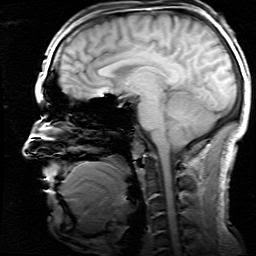As another note, I added a small amount of gypsum to the boil. My hope is that the sulfate from this will help add some "zing" to the hops character. Additionally, I prepared the yeast starter 4 days in advance, and cold crashed it in the refrigerator after 3 days. After approximately 36 hours, and just prior to pitching the yeast, I decanted most of the spent wort, and pitched just a yeast slurry of approximately 0.5 L volume.
Finally, I have been doing some adjustments to my equipment profile in BeerSmith, to try and get my mash temperatures a little closer. For this time around, I assumed a mash tun temperature of 164°. Finally, that seemed to do the trick, and I hit my mash temperature pretty much square on.
Lab Bench Pale Ale
- 8.6 lbs. 2-row malt (Great Western Malting Co.)
- 6 oz. 40° L crystal malt
- 0.5 oz. whole Cascade hops (added to mash; approximately 85 minutes steeping total)
- 0.5 oz. whole Cascade hops (first wort; steeped in wort for approximately 45 minutes and boiled for 60 minutes)
- 1 oz. whole Cascade hops, 20 minute boil
- 0.75 oz. Cascade hops pellets (7.5% alpha, 5.5% beta), 10 minute boil
- 1.25 oz. Cascade hops pellets (7.5% alpha, 5.5% beta), added at flame-out and steeped for ~30 minutes during chilling of wort
- 2 oz. Cascade hops pellets (7.5% alpha, 5.5% beta), dry hop for 10 days
- 1 tbs. 5.2 pH stabilizer (added to mash)
- 8 g. powdered gypsum (added to boil)
- 1 tsp. Irish moss (10 minute boil)
- California Ale Yeast (White Labs WLP001), prepared 4 days in advance with 1.5 L starter
Anticipated statistics
- 1.047 o.g., 1.010 f.g., 4.8% abv
- 37.8 IBU
- 5.0 SRM
Procedure
- I mashed in with 4 gallons of water at 164°. The grains, 0.5 oz. of whole hops, and 5.2 pH stabilizer were all included in this mix. The temperature had stabilized at 152° within 10 minutes, and was down to 150° after 30 minutes.
- After a 60 minute mash, I added 1.35 gallons of 190° water, let it sit for 10 minutes, vorlaufed, and collected approximately 3.25 gallons of wort.
- I added 3.14 gallons of water at 180°, which brought the mash up to 168°. I let this rest for 10 minutes, vorlaufed, and collected the remainder of the wort.
- All together, I collected ~6.65 gallons of wort, with a gravity of 1.038 at 60°. This translates to 76.8% mash efficiency, within a percentage point or so of where I predicted.
- I added the gypsum and brought the wort to a boil, adding hops at the designated intervals. Thus, hops were added at 40 minutes, 50 minutes (along with Irish moss), and 60 minutes (at flame-out). I noted a larger than normal amount of hot break; I'm not sure why this was.
- I chilled the wort down to 72°, transferred it to a carboy, and pitched the yeast. I plan to start fermentation (the first 12-24 hours) at 67°, and will do the remainder of fermentation at 65°.
- I plan to transfer to the keg and dry-hop in 7 to 10 days.
- Starting gravity was 1.047, exactly as calculated by BeerSmith. This has been a really good brew session, in terms of nailing efficiency, temperatures, volumes, and gravities.


No comments:
Post a Comment